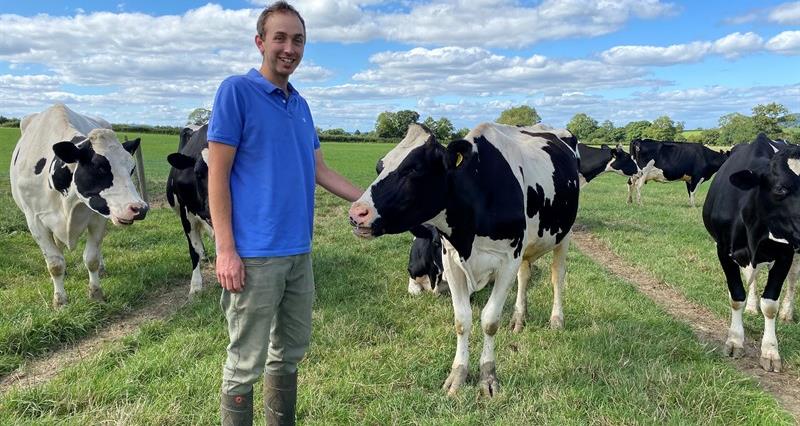A column by next generation forum chairman David Ractliffe featured in the Daily Express as part of its Green Britain campaign highlighting how people can adopt a more sustainable diet by buying British meat and dairy. It read:
What we eat is a personal choice – it’s not up to anyone else to dictate. But it is important that these decisions are based on accurate information. It really isn’t as simple as plant-based good and animal-based bad.
Often people see large scale, intensive farm systems in the US or deforestation caused by Brazilian cattle farming and believe it’s the same in the UK. On my farm – a typical example of British livestock farming – that couldn’t be further from the truth.
I work on our family dairy and beef farm in the Stroud valleys in Gloucestershire. Picture herds of Aberdeen Angus and Hereford beef cattle, two much-loved native breeds, grazing steep slopes and uneven terrain. And it’s green. We get plenty of rain here which means grass grows in abundance.
We’re also fortunate to share this landscape with other wildlife – when I was walking the cows in for milking last night a pair of bright green woodpeckers whizzed past me.
Cows have been grazed on this land for generations and it’s the most sustainable way to produce food on it. There’s no way it could be used for growing any crops except grass. It means our cows are grass-fed pretty much all year round, turning inedible grass into high quality, nutritious protein – the meat, milk, cheese, yoghurt and cream that millions of people continue to enjoy.
Grazing cows means pasture lands which store vast amounts of carbon in the ground. Cows’ manure is a natural fertiliser, improving soil health and organic matter which contributes to the amount of carbon that can be stored within it. Cow pats are also home to thousands of insects and microorganisms which are beneficial to the environment.
That’s the picture of livestock farming in Britain. But it’s important to recognise that any food can be sustainably produced in one place and unsustainably in another, whether its animal-based or plant-based. We should be basing our decisions on how products are produced – what methods are adopted, what natural resources are available and how efficiently they’re used.
I would also urge you to buy locally wherever possible. Many dairy farms are setting up milk vending machines at their farm gate and this is a great way to support local producers while keeping food miles down.
Simply put, it is possible to produce meat and dairy in a climate-friendly way. Emissions from UK beef and dairy are already less than half the global average and British farmers are working to become net zero by 2040.
So if you want to adopt a greener diet while still enjoying quality meat and dairy, know that you can do so by buying British from farmers like me.
